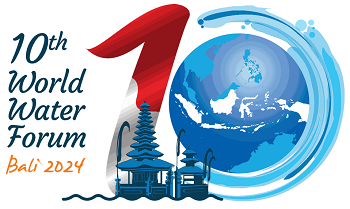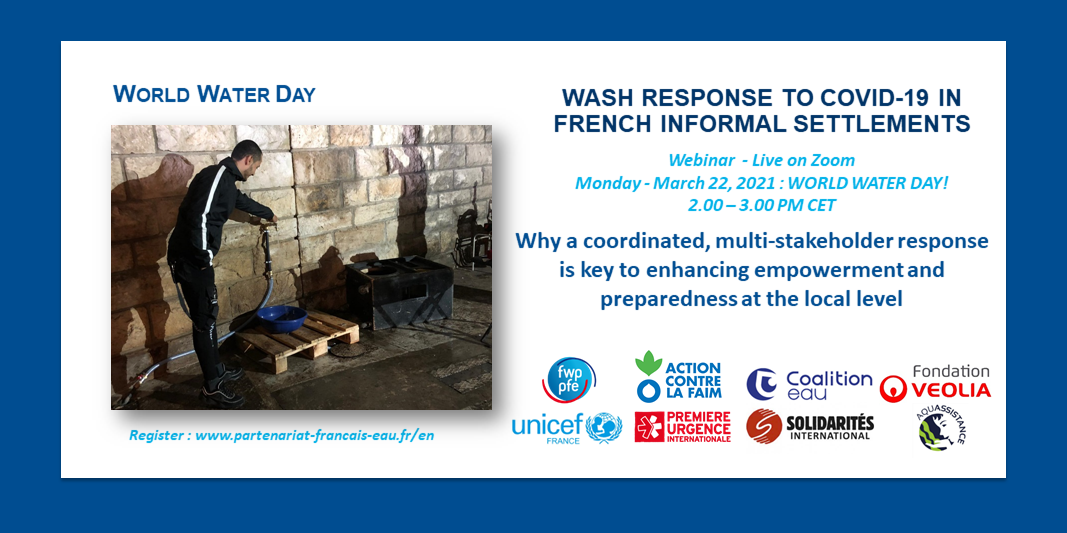WASH RESPONSE TO COVID-19 IN FRENCH INFORMAL SETTLEMENTS
Why a coordinated, multi-stakeholder response is key to enhancing empowerment and preparedness at the local level
The event presentation is accessible here
The French Water Partnership is pleased to invite you to an upcoming webinar on the ‘WASH response to COVID-19 in French informal settlements’, taking place this World Water Day on March 22, 2021 from 2PM to 3PM CET.
The webinar will present the collective actions of organisations working in informal settlements in France to rapidly increase access to water, sanitation and hygiene (WASH) during the COVID-19 pandemic. By working together, they were able to better target those most in needs.
One of the most critical issues has been handwashing, a commonplace practice for the rest of France. More than a year into the pandemic, handwashing with soap remains one of our best defenses to slow the spread of the virus and to save lives.
This prevention measure is, however out of reach or difficult to apply for populations living in informal settlements where access to water and soap can be complex. Without the capacity or means to carry out these measures, people who live under these conditions continue to remain at risk.
In mainland France, in 2019, 17,619 people lived in 359 slums and squatter housing (of more than 10 people) according to the Inter-ministerial Delegation for Access to Accommodation and Housing (DIHAL). 77% of these sites do not have access to water on premises.
With COVID-19, a political window of opportunity has opened on the issue of access to water, sanitation and hygiene in informal settlements. Some ministries and local governments have shown an interest in increasing their efforts towards this end. During lockdown, NGOs that usually operate internationally (ACF, PUI, Solidarités International) have joined forces with long-established local actors to improve access to WASH products as quickly as possible .
- They used coordination mechanism to target and support the population most in need.
- They shared technical knowledge on most appropriate technical solutions, developed common minimum standards to reach, etc.
- They have been conducting advocacy efforts to clarify a rather vague institutional framework in terms of access to WASH in informal settlements.
Speakers : Action contre la Faim, Aquassistance, Coalition Eau, Eau du Grand Lyon, Fondation Veolia, Première Urgence International, UNICEF-France
AGENDA
2:00 PM – 2:40 PM :
- UNICEF France will explain why they decided to intervene in France and finance coordination activities.
- Action Contre la Faim will present the key multi-actors coordination processes and tools.
- Première Urgence International will present how they conducted WASH diagnosis, distributed hygiene kits and conducted awareness activities.
- Aquassistance will present how they supported the implementation of water points through training and on-site interventions
- The Veolia Fondation / Eau du Grand Lyon will present some of the implemented sanitation solutions.
- Coalition Eau will conclude the ongoing advocacy work to improve more sustainably access to WASH in informal settlements in France.
2:40 PM – 3:00 PM : Q&A
For more information, please follow us on Twitter and LinkedIn.



